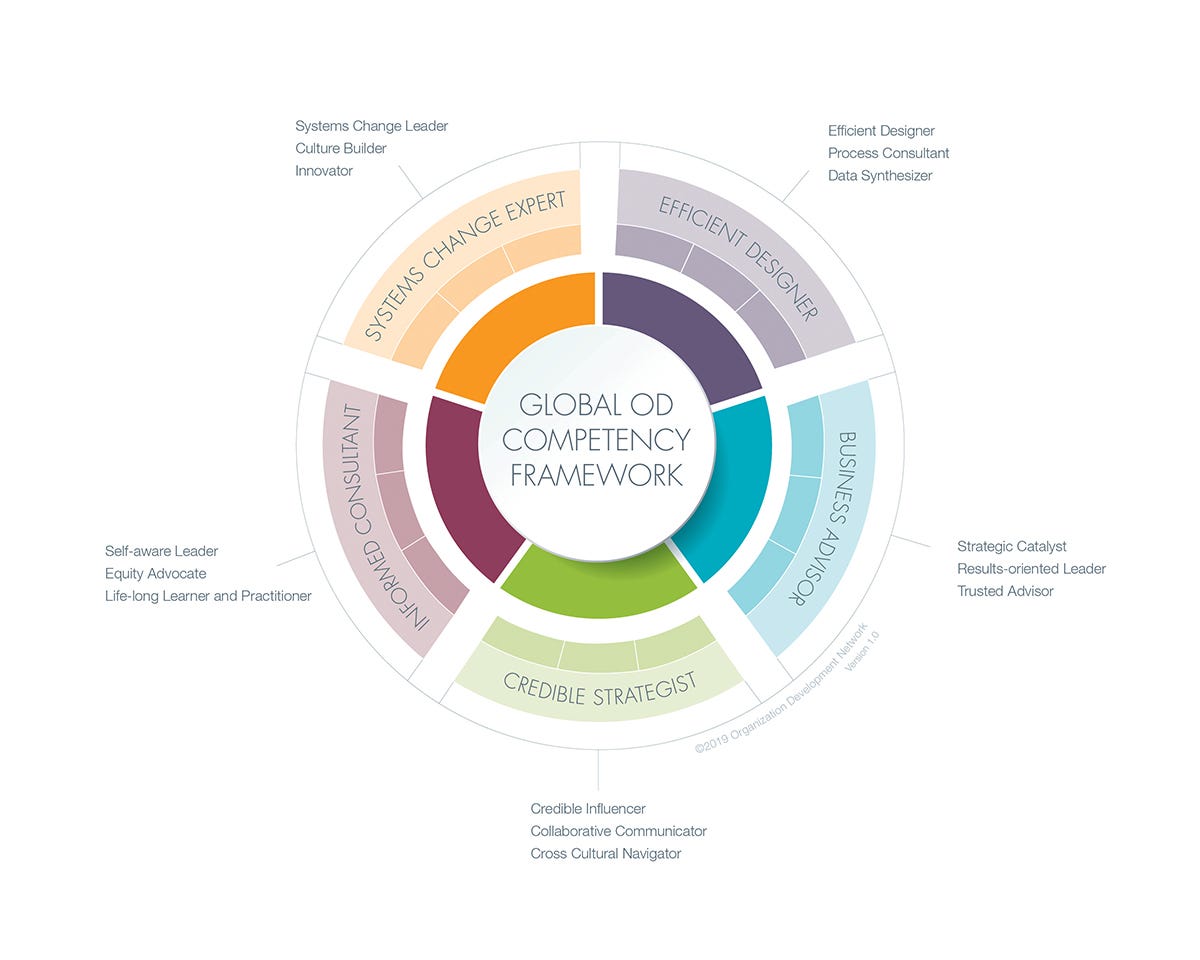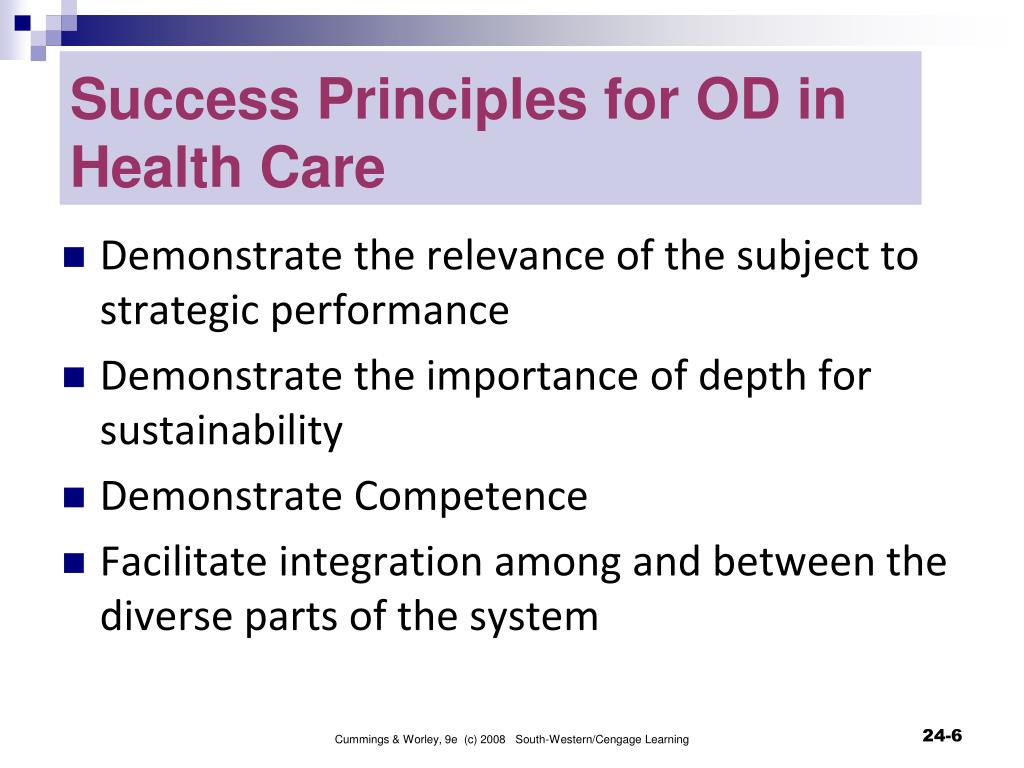Antwort What are the principles of OD? Weitere Antworten – What are the OD principles

These core principles of the field include: Humanistic: anchored in humanistic values of democracy, participation, informed consent, positive human potential, and thriving. Organization-wide: focused on an organization-wide shift, such that every level of the organization—individual, groups and the whole—are developed.Organization Development (OD) focuses on aspects of organizational life, including culture, values, systems, and behavior. The goal of OD is to define and plan high performance in the workplace of successful organizations.Key concepts of OD theory include: organizational climate (the mood or unique "personality" of an organization, which includes attitudes and beliefs that influence members' collective behavior), organizational culture (the deeply-seated norms, values, and behaviors that members share) and organizational strategies (how …

What are the basic components of OD : 5 Critical Components to Organizational Development
- Change Management: OD is a process of change that can be challenging for organizations.
- Leadership Development: Leaders play a critical role in shaping an organization's culture, values, and goals.
- Team Building:
- Process Improvement:
- Performance Management:
What are three principles of good OD practice
But I didn't say no, because I am convinced that OD principles and practices of inclusion, collaboration, systems thinking and social responsibility are the way leadership ought to be.
What are the three theories of OD : The theory states that there are three driving forces in organizational change and development—rationality, reality, and liberty. OD can be viewed as a planned process of change in an organization so as to establish equilibrium among these three interacting forces.
OD process implies sequence of activities undertaken to transform behaviour, thought or systems throughout the organisation. The OD process/ programme has three major components i.e. diagnosis, action and effective programme management.

The 5 Step Organisational Development (O.D.) Process
- Identify the needs of the organisation.
- Decide on how to address those needs.
- Select your intervention.
- Implement the intervention.
- Evaluating the impact.
What are the four OD interventions
Examples of OD Interventions
As previously mentioned, there are four major categories of OD interventions: human process interventions, techno-structural interventions, human resource management interventions, and strategic change interventions.Organizational development models provide step-by-step processes to initiate and guide the changes needed to reach the desired outcome. The European Centre for Research Training and Development UK lists the four organizational development models as: Lewin's Three-Stage Model. Action Research Model.OD practitioners implement the development initiatives in five phases:
- Entry and contracting.
- Diagnosis and assessment.
- Feedback and planning.
- Intervention and implementation.
- Evaluating and monitoring.
As previously mentioned, there are four major categories of OD interventions: human process interventions, techno-structural interventions, human resource management interventions, and strategic change interventions.
What are the 5 stems of OD practices : Typically, OD is explained as stemming from five major backgrounds (stems): i) Laboratory training, ii) Action research or Survey feedback, iii) Normative approaches, iv) Quality of work life, and v) Strategic change.
What are the phases of OD strategy : Entry, Diagnosis, Feedback, Solution and Evaluation.
What are the major OD interventions techniques
Here are the main types of organizational development interventions:
- Team building.
- Leadership development.
- Change management.
- Conflict resolution.
- Communication enhancement.

Organizational development models help with change logistics by providing a clear framework. These models serve two purposes: to help lay out a plan of action and to clarify communication for employees.What are examples of Organizational Development Examples of activities often a part of Organizational Development include employee training, strategic realignment, product research, management restructuring, and service development.
What are the three basic components of OD programs : Three basic components of OD programs: Diagnosis = continuous collection of data about total system, its subunits, its processes, and it culture. Action = all activities and interventions designed to improve the organizations functioning • Program management = all activities designed to ensure success of the program.

